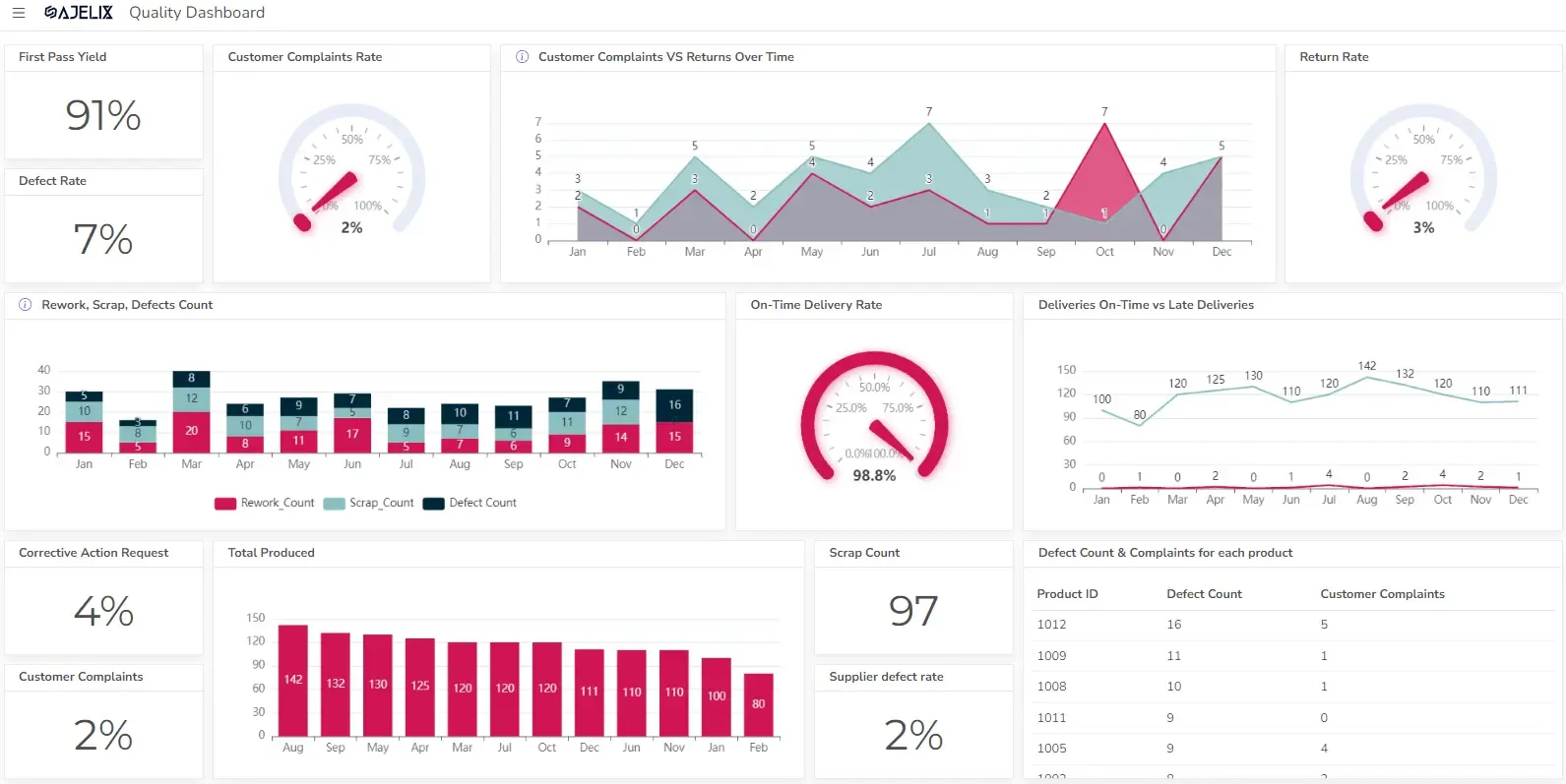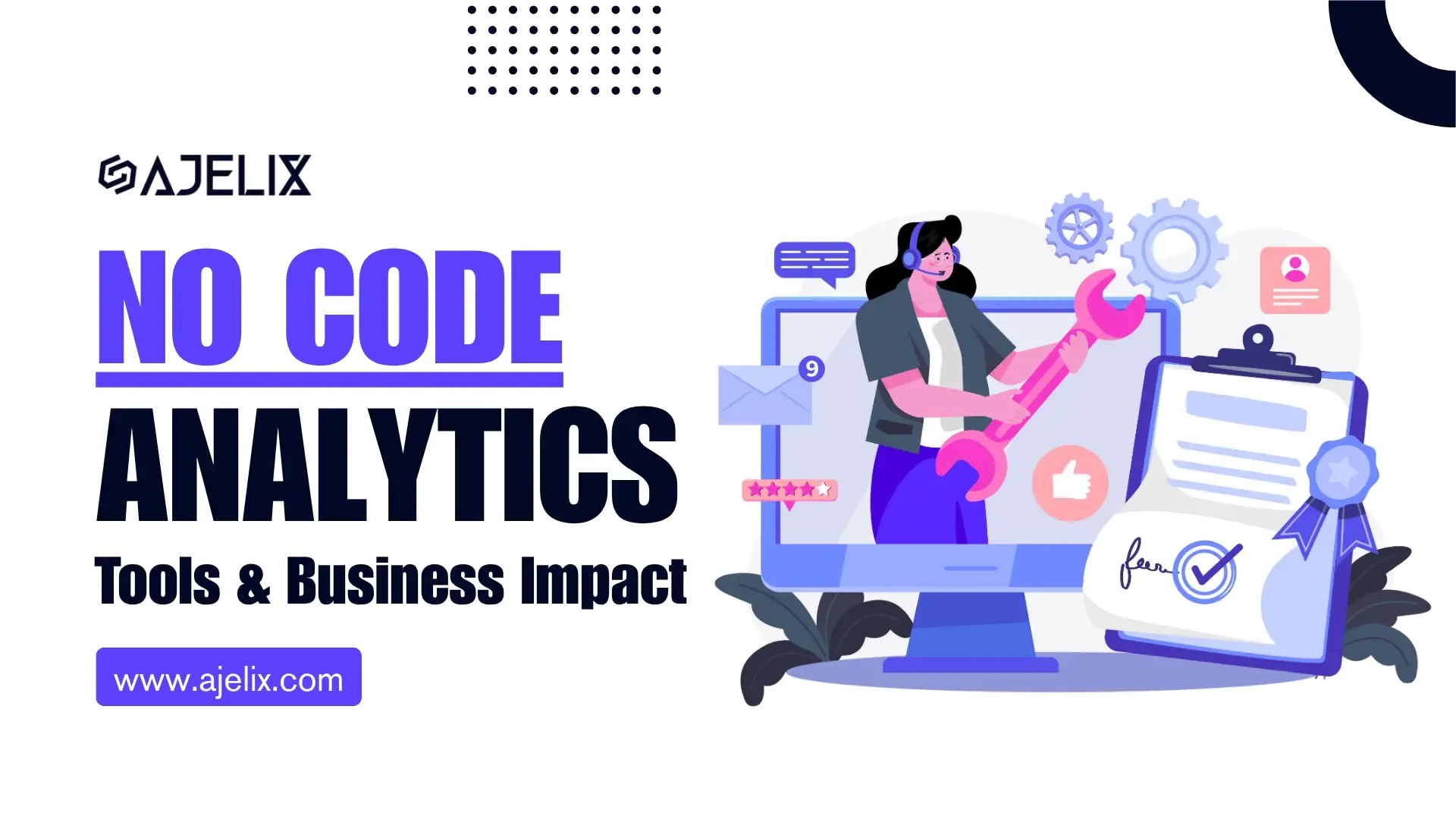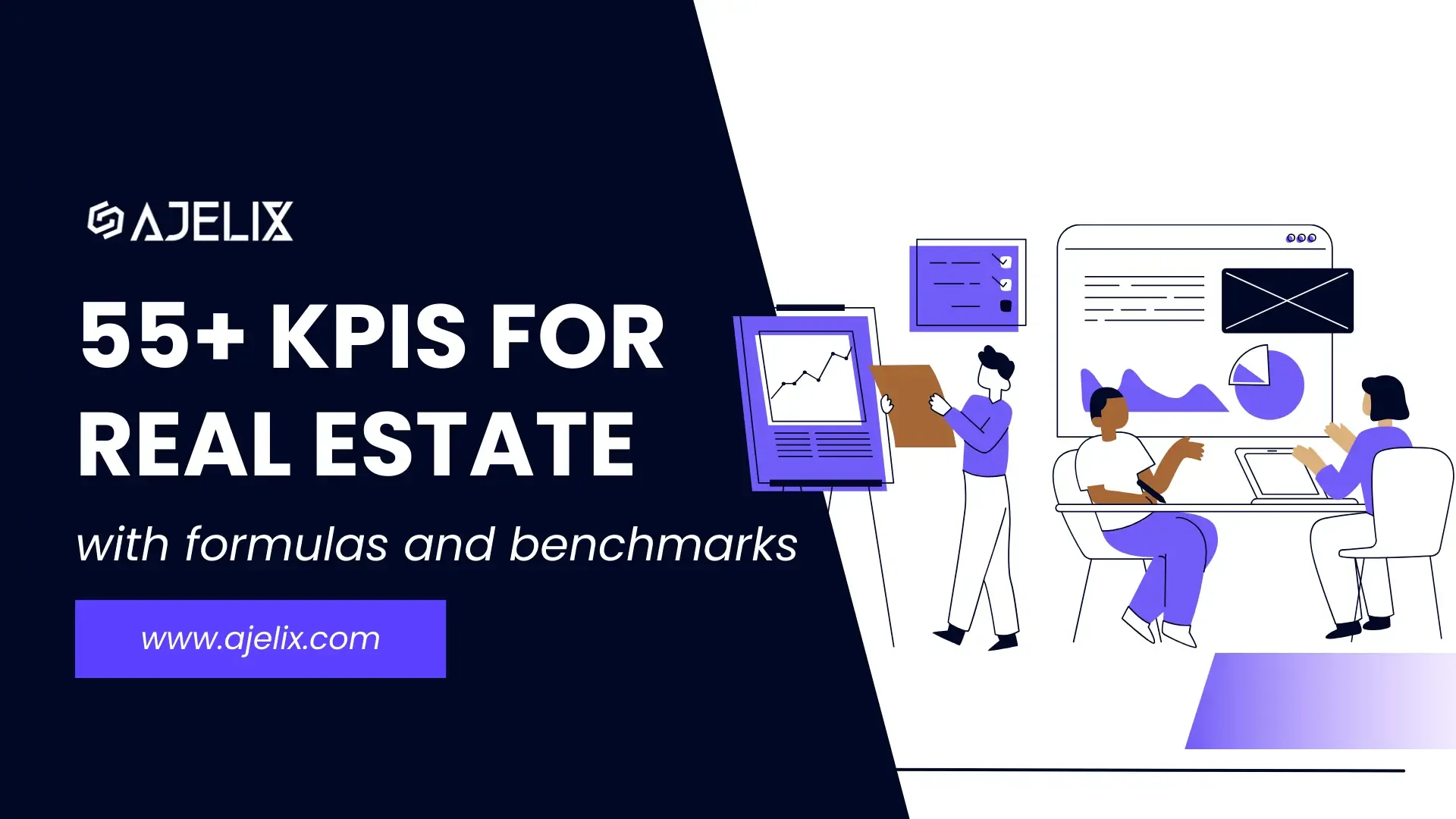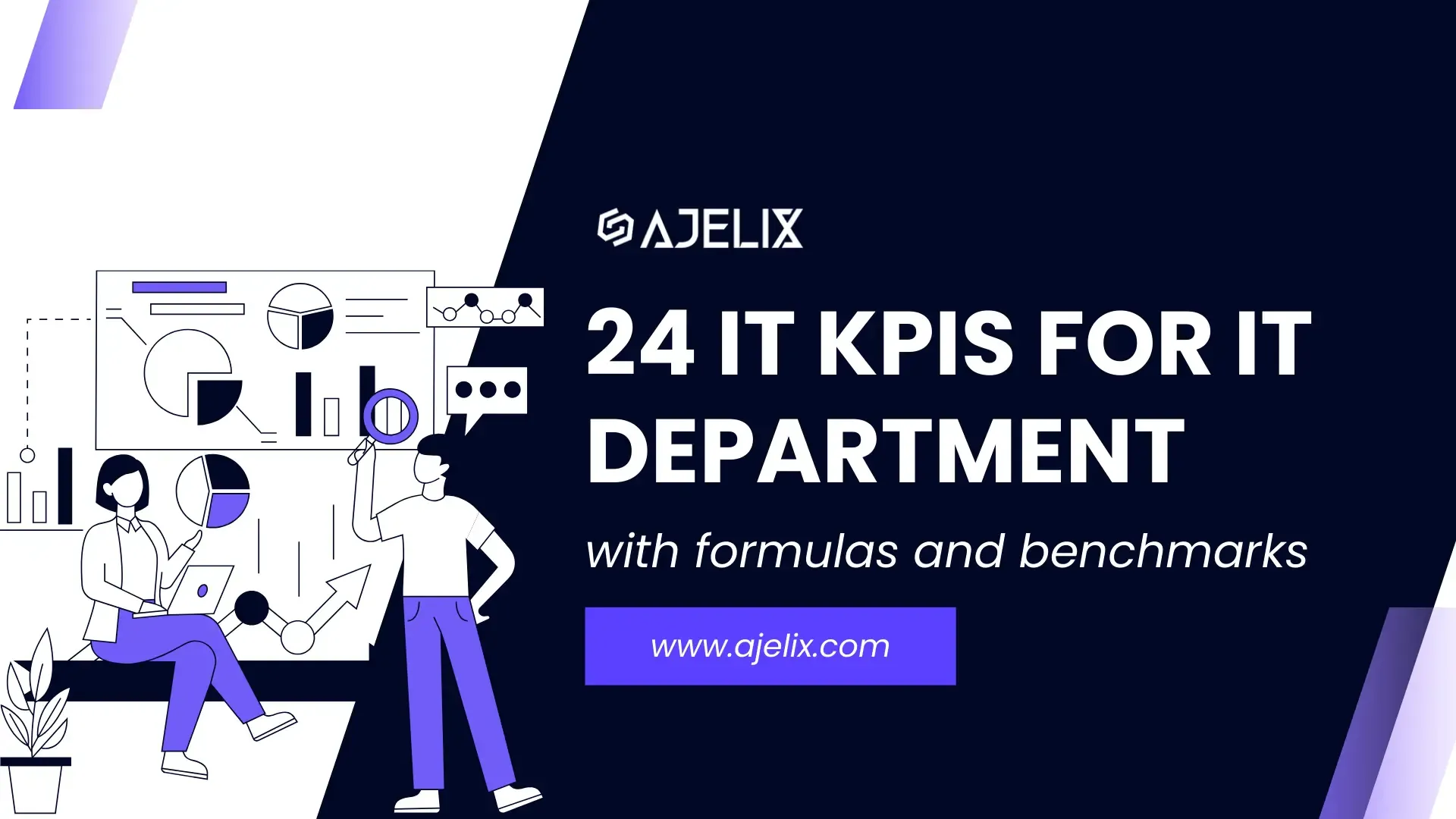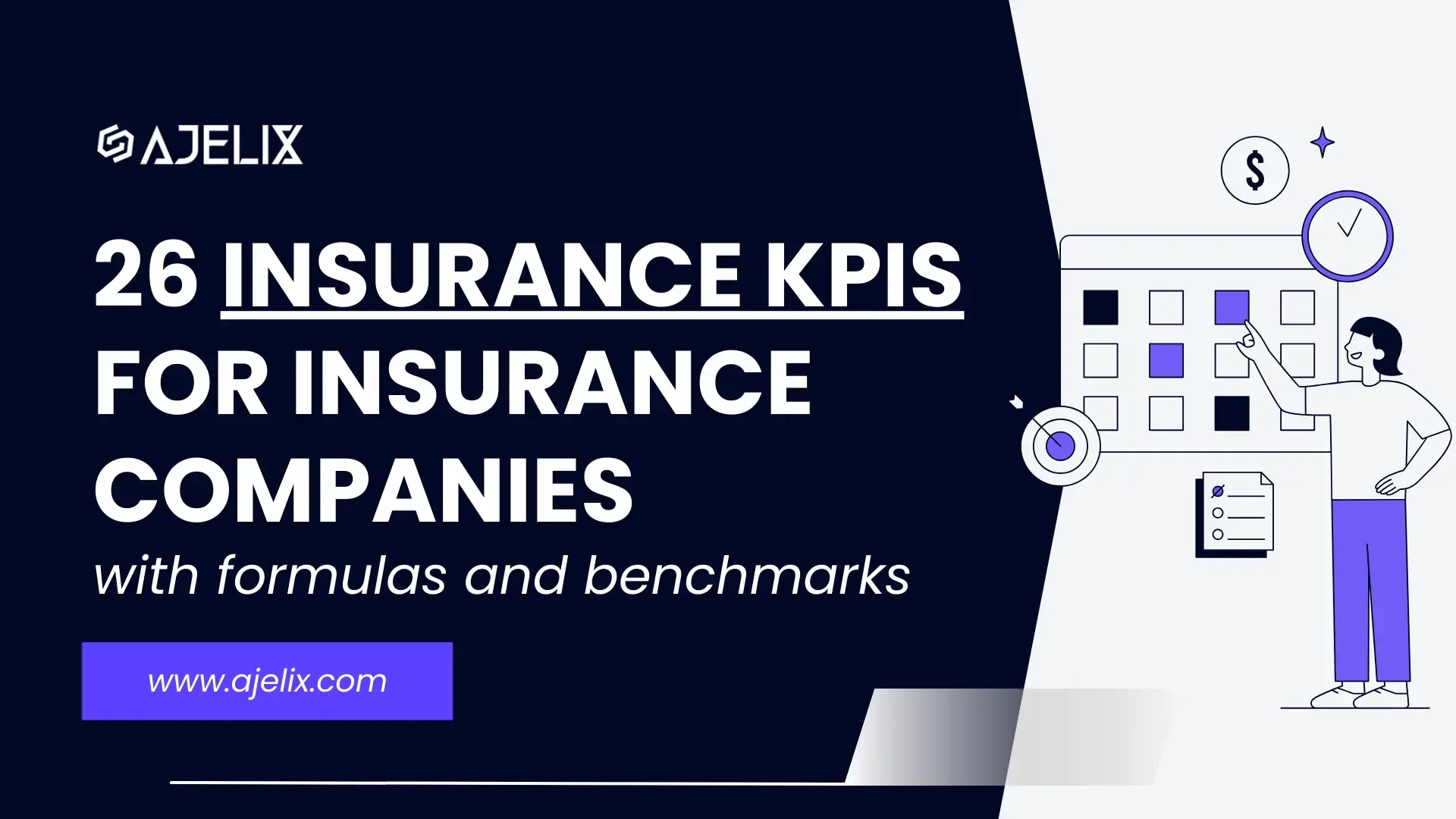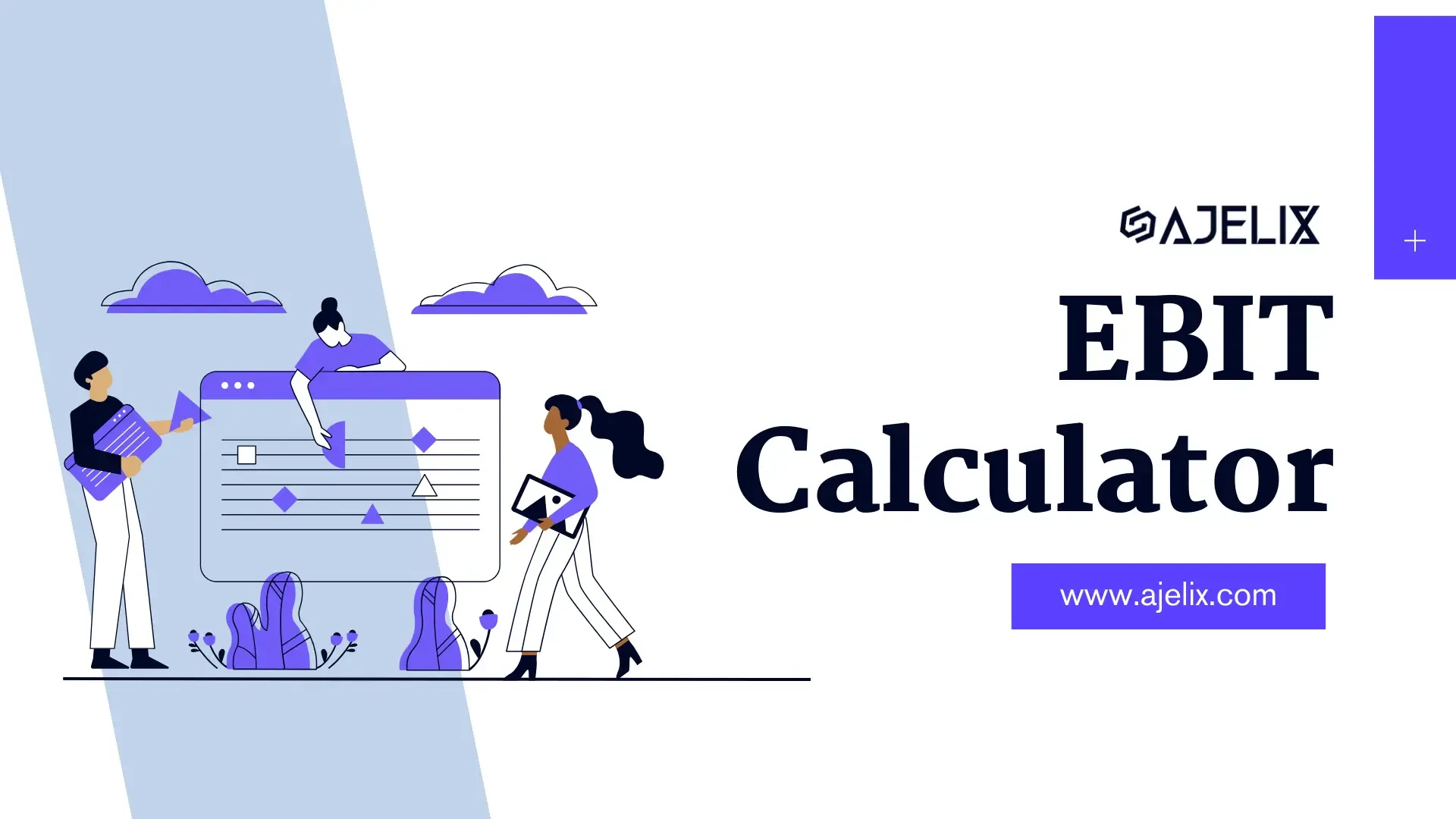- Home
- Product
- Tools
- AI Data Analyst
- Excel Formula Generator
- Excel Formula Explainer
- Google Apps Script Generator
- Excel VBA Script Explainer
- AI VBA Code Generator
- Excel VBA Code Optimizer
- Excel VBA Code Debugger
- Google Sheets Formula Generator
- Google Apps Script Explainer
- Google Sheets Formula Explainer
- Google Apps Script Optimizer
- Google Apps Script Debugger
- AI Excel Spreadsheet Generator
- AI Excel Assistant
- AI Graph Generator
- Pricing
-
Author:
Best Analytics Platform For Startups In 2026
-
Last updated:November 29, 2025
-
Tags:
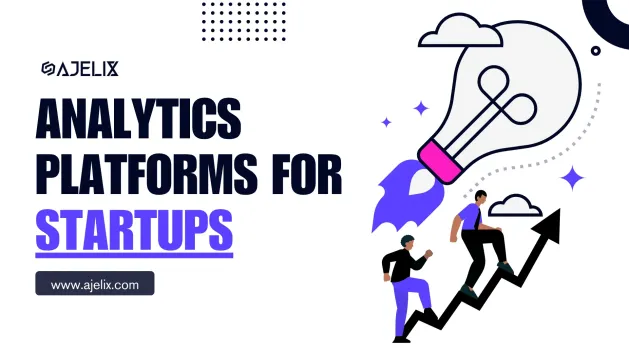
Explore other articles
- What AI Studies Say About Agentic AI ROI & Stats (And What They Don’t)
- Google Sheets AI Agents That Autonomously Perform Tasks
- Advanced Agentic Research With AI Agents
- GLM-5 is Now Available on Ajelix AI Chat
- AI Spreadsheet Generator: Excel Templates With AI Agents
- Excel Financial Modeling With AI Agents (No Formulas Need!)
- AI Landing Page Generator: From 0 To Stunning Page With Agent
- Creating Charts In Excel with Agentic AI – It Does Everything!
- Create Report From Google Sheets Data with Agentic AI
- How To Create Powerpoint Presentation Using AI Agent (+Video)
Analyze data with AI
TL;DR
The best analytics platforms for startups in 2026, based on reviews and testing, are Ajelix, Heap, Google Analytics 4, and Mixpanel.
When data drives every move, choosing the best analytics platform is no longer just a technical decision. It’s a strategic move. Having grown from a startup ourselves, we want to help you find the best analytics platform for startup data needs by focusing on what matters: goals, key features, cons, and, of course, price.
Table of Contents
Why You Can’t Skip Analytics in 2026?
The startup landscape has changed dramatically. Approaches that worked five years ago, for example, building first and measuring later, are often a recipe for failure in today’s hyper-competitive market. What’s even riskier is choosing the wrong analytics platform once you realize you need one.
What is the biggest data mistake startups make?
Choosing analytics platforms based on features they might need someday rather than problems they have today. This leads to over-engineered solutions that slow down decision-making instead of accelerating it.
We’ll help you avoid this trap, but first, let’s establish why analytics are no longer optional.
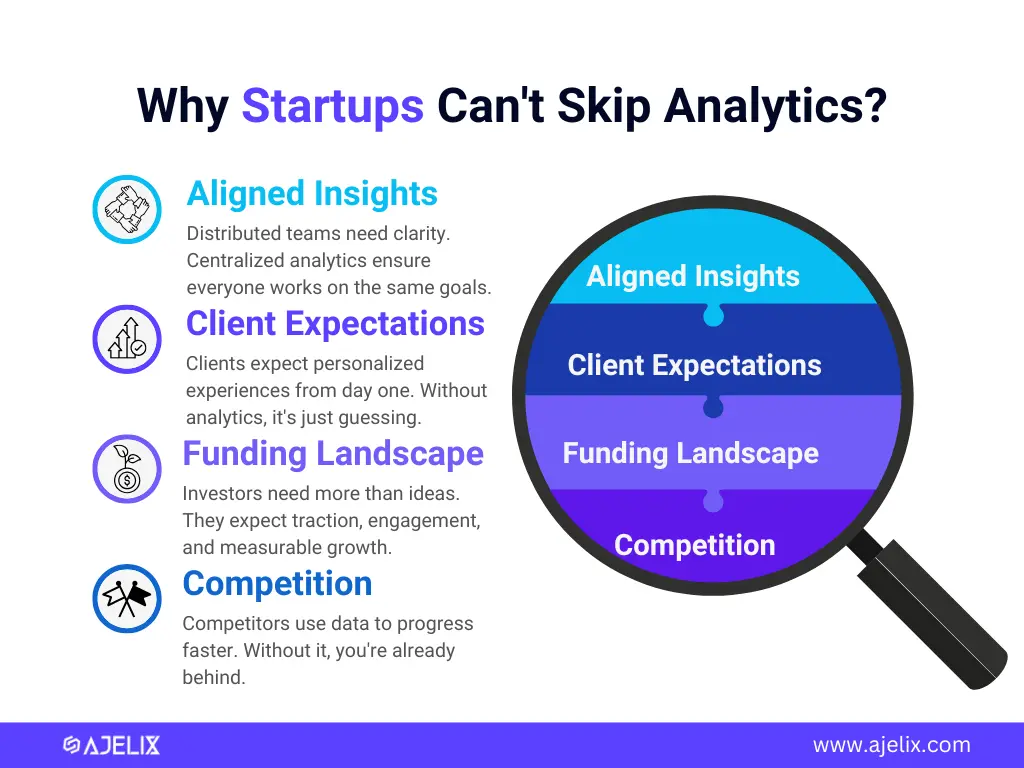
Let’s look at these four reasons more closely:
- Client expectations have evolved: Customers now expect personalized experiences from day one. Without proper analytics, you’re essentially flying blind, making product decisions based on gut feelings and guesses rather than client behavior data.
- Funding landscape demands proof: Startup investors aren’t just looking at the idea anymore, they want to see traction metrics, user engagement rates, and clear growth trajectories. The days of securing funding on a compelling pitch alone are behind us.
- Competition moves faster than ever: Your competitors are using data to optimize their user acquisition, retention, and product development cycles. If you’re not measuring and making decisions based on concrete data, you’re already falling behind.
- Remote work requires more aligned insights: With distributed teams becoming the norm, having a centralized analytics platform ensures everyone stays aligned on the goals, key metrics, and overall business performance.
The cost of not having proper analytics isn’t just missed opportunities: it’s wasted resources, poor product-market fit, and ultimately, startup failure. Data-driven decision making isn’t a luxury anymore, it’s survival. Yes, sounds dramatic, but it is true.
Defining Analytics Goals
Before diving into the analytics platform overview, let’s focus on what you’re trying to achieve with analytics. Choosing the wrong analytics platform can set you back for months. Let’s not let this happen and divide analytics into four categories: product, marketing, business intelligence, and customer.
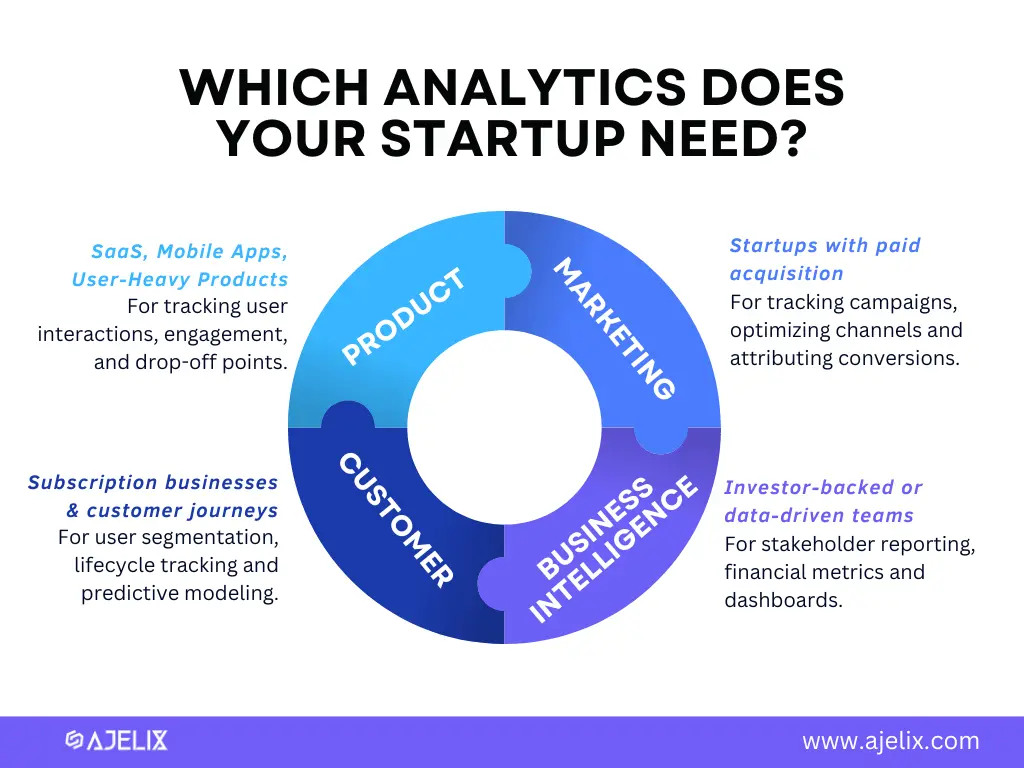
Start carefully thinking about which type of analytics could be more relevant for your startup data struggles.
Specific Goal Examples by Startup Type
Keep your focus on the analytics type that might solve your immediate pain points and eventually reach your analytics goals. To gain more understanding of your primary goals, let’s look at some examples.
| Startup Type | Primary Goals | Key Metrics to Track | Category |
|---|---|---|---|
| Early-stage SaaS | Validate product-market fit, understand feature usage | User activation rate, feature adoption, churn by cohort | Product Analytics |
| E-commerce | Optimize conversion funnel, reduce cart abandonment | Conversion rate by traffic source, average order value, customer lifetime value | Marketing + Customer Analytics |
| Mobile App | Improve user engagement, reduce uninstall rates | Daily/monthly active users, session duration, in-app purchase conversion | Product Analytics |
| B2B Platform | Track sales pipeline, measure customer success | Lead scoring, sales cycle length, expansion revenue, NPS | Business Intelligence + Customer Analytics |
| Content/Media | Grow audience, monetize engagement | Page views, time on site, subscriber growth, ad revenue per user | Marketing Analytics |
If you’re unsure where your startup fits, start with product analytics, as it’s usually the fastest path to insight.
Which is the Best Analytics Platform for Startup Data Needs?
Analytics is a broad term covering everything from website visitor behavior to business intelligence reporting. The platforms below represent different categories of analytics that startups typically need.
You might be interested: 10 Must-Have AI Tools for Every Startup
So, to help you answer the question of “Which is the best data analytics platform for startup data needs in 2026?”, you have to start by shifting perspective. Rather than direct competitors, think of these as specialized platforms for different aspects of your business: some focus on user behavior, others on marketing performance, and some on general analytics.
1. Ajelix
Ajelix is a data analytics platform designed to make complex data analysis easy for non-technical teams. It offers access to over 18 AI productivity tools, ranging from Excel script automation to advanced data cleaning, and a Business Intelligence platform. Ajelix helps startups seamlessly analyze data without the need to hire specialized data analysts.
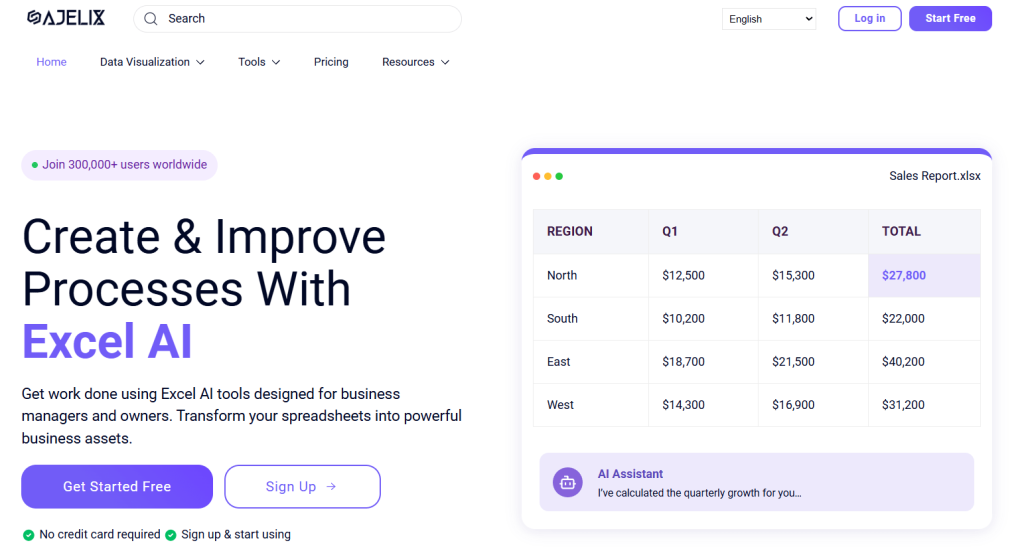
Target Users
Ajelix is ideal for startups searching for a data analytics solution that serves different teams, from finance and operations to marketing and manufacturing. Its AI analytics and business intelligence capabilities extend far beyond basic web tracking. Startups and non-technical teams looking for quick AI-driven insights without the complexity of technical tools can unlock real value with Ajelix.
Key Features
- Flexible Data Connectivity: Ajelix supports integration with key platforms like Google Sheets, Excel, MySQL, PostgreSQL, CSV files, and custom APIs, allowing users to easily automate workflows and access live data.
- Live Collaboration & Unified Reporting: Teams can build and share interactive dashboards, with real-time data synchronization that ensures everyone is aligned and working with the most current insights.
- Chat-Based Data Exploration: Through an intuitive conversational interface, users can clean, analyze, and interact with data using natural language: no technical expertise needed.
- Community-Driven Innovation: Ajelix evolves quickly by prioritizing user feedback. Tools like the AI Data Analyst were created in direct response to actual user needs and struggles, ensuring the platform remains practical and relevant.
- No technical setup required: Ajelix stands by the fact that it is made for non-techies. Users can easily upload their data, ask a question, and get insights immediately.
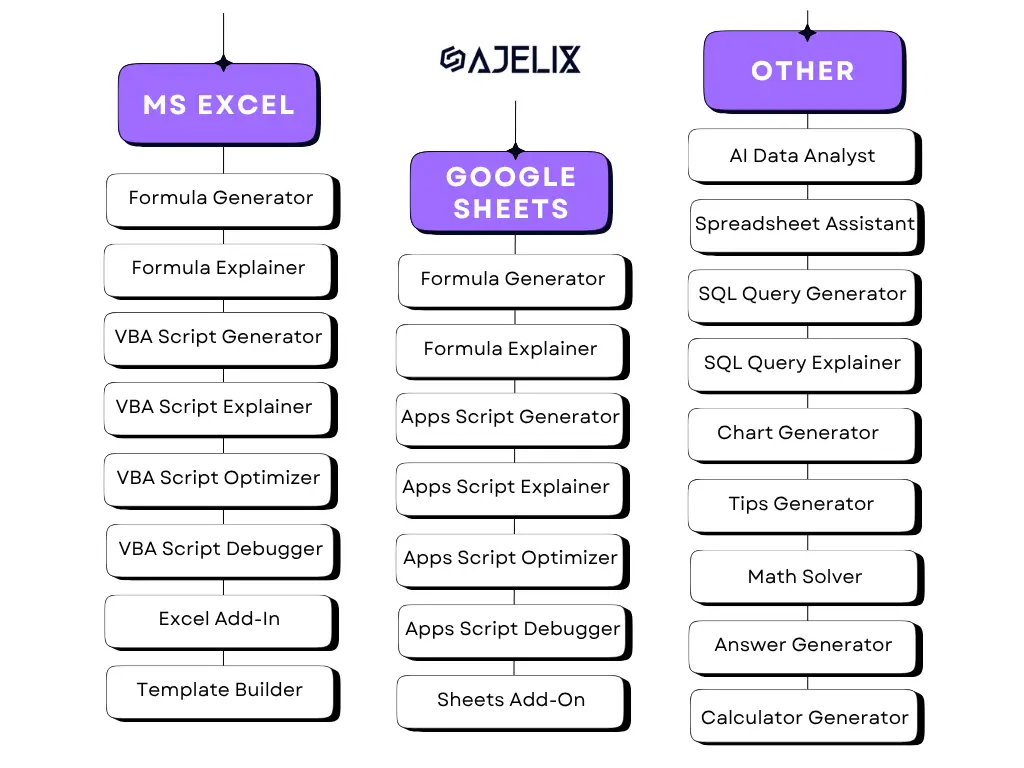
Considerations for Startups
- For unlimited access, a monthly subscription is required: The Ajelix team continuously works on platform updates and new tool launches to ensure the platform stays current and competitive, which requires ongoing development resources and infrastructure investment.
- Variety of features can feel overwhelming: For new users, access to 20+ AI tools and the built-in BI platform may feel like a lot to take in at first, but well-structured onboarding documentation and support are there to help.
Pricing
Ajelix operates on a freemium pricing model, offering four plans: Free, Pro, Expert, and Business. Good news: pricing of each plan is startup-friendly!
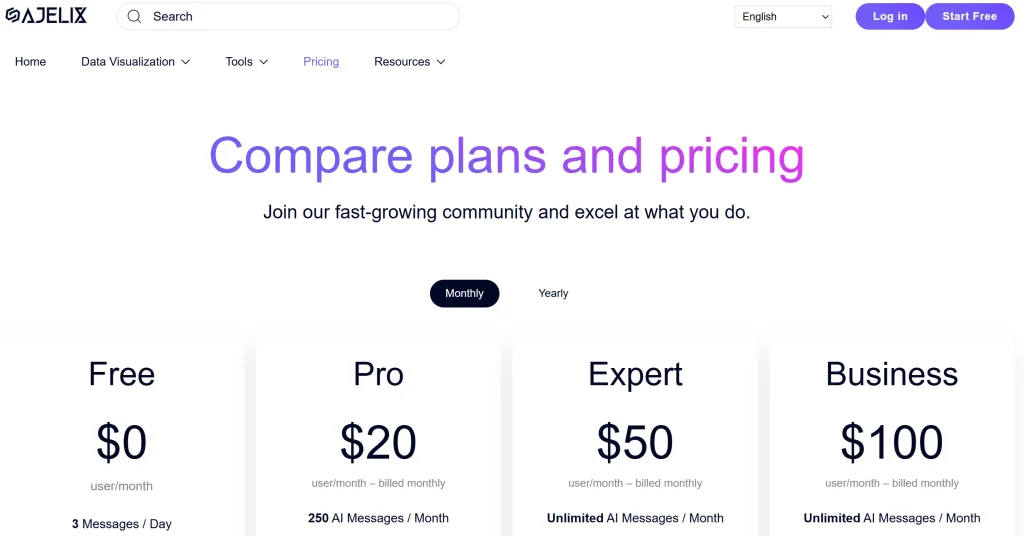
The Free Plan is designed for new users who want to explore the platform. It provides limited access to the AI tools and Business Intelligence (BI) features. For clients primarily focused on AI tools, the Pro Plan offers unlimited use of over 18 AI tools and includes up to 250 AI messages per month.
300,000+ professionals already made the switch to Ajelix Agents From Excel automation to full business apps, Ajelix is the AI workspace built for work that actually needs to get done.
Users of the Expert or Business Plan benefit from unlimited use of AI tools and messaging, along with complete functionality of the BI platform. The Business Plan, designed for teams with complex data needs, goes even further by enabling unlimited dashboard creation and integration with up to 100 BI data sources.
Learning Curve
Ajelix is designed to be beginner-friendly with its natural language interface and rich onboarding content. Advanced automations or custom scripting may require more time and practice, but insightful documentation and high-quality client support are easily accessible.
2. Heap
Heap is a product analytics platform that automatically captures every user interaction on web or mobile apps, helping startups uncover insights without needing manual event tracking.
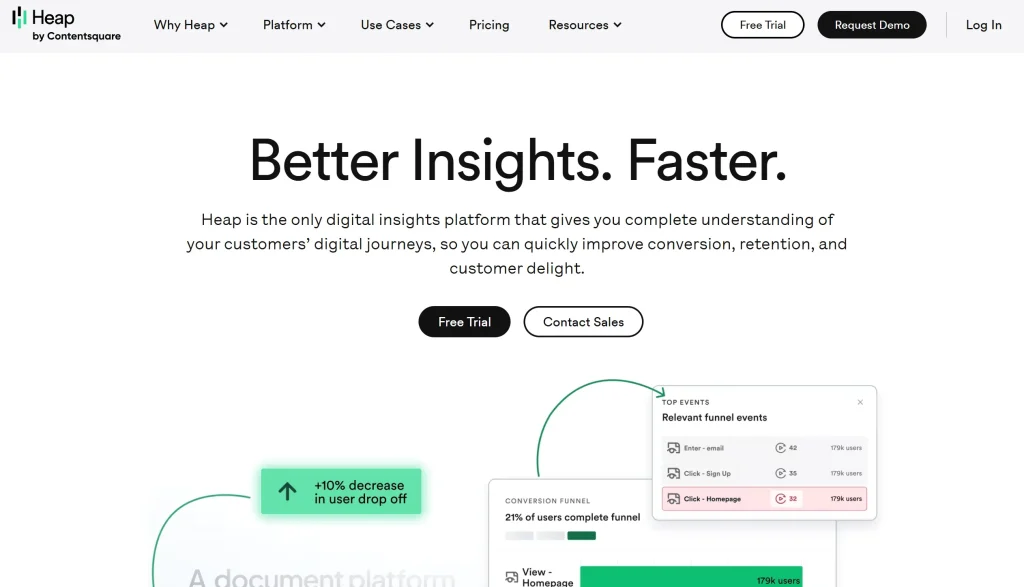
Target Users
Heap is designed for product teams, growth marketers, and startup founders who want fast access to user behavior data without heavy engineering support. Mobile apps, SaaS products with complex user interfaces, or any startup where understanding detailed user behavior is critical for product development, can benefit from Heap.
Key Features
- Autocapture: Automatically logs clicks, swipes, form submissions, and more actions.
- Journey Mapping: Heap visualizes user paths and friction points.
- Retroactive Analysis: The platform analyzes events that the client didn’t initially tag.
- Segmentation and Funnels: Building dynamic visualizations can help to see how users convert.
- Data Governance: Heap helps ensure clean and compliant data.
Considerations for Startups
- Overwhelming data volume: Auto-tracking can lead to noise if not filtered properly.
- Advanced features require training: Custom events and complex reports may require onboarding.
Pricing
Heap offers four pricing plans. Its free plan includes up to 10,000 monthly sessions, but pricing information about the other plans is not available upfront, making it harder to compare costs.
Learning Curve
Heap is easy to start thanks to autocapture, but deeper analysis, like defining meaningful custom events, has a moderate learning curve.
Google Analytics 4
Google Analytics 4 (GA4) is Google’s analytics platform for tracking website and app engagement across devices. It uses event-based data modeling to provide deeper insights into user behavior and lifecycle.
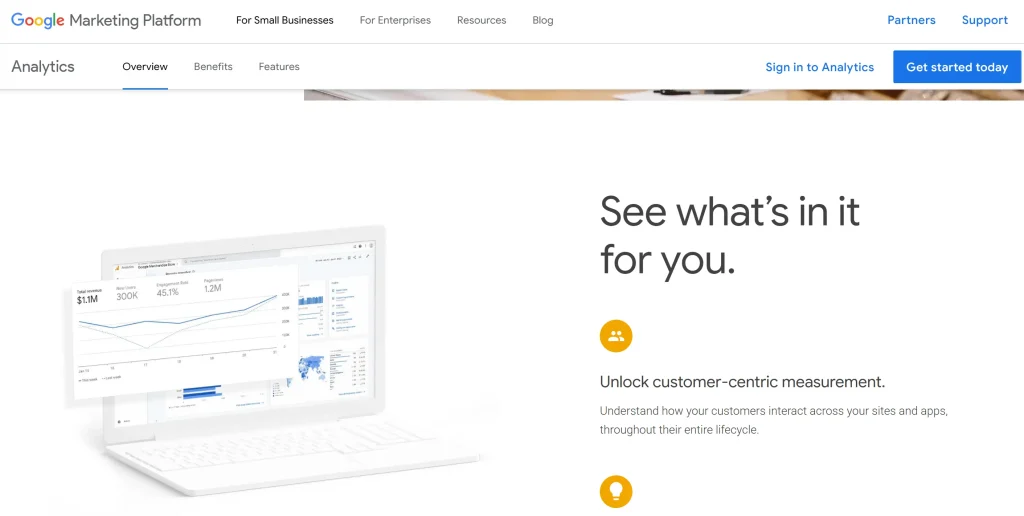
Target Users
GA4 is ideal for growth-stage startups that need tracking of user interactions across web and mobile. It’s best suited for marketing teams, product analysts, and technical founders. Any startup with a web presence, e-commerce companies needing detailed marketing attribution, or budget-conscious teams needing analytics can benefit from GA4.
Key Features
- Event-based Tracking: Captures detailed user interactions without relying solely on page views.
- Cross-platform Reporting: GA4 tracks web and app data in a single property.
- AI-powered Insights: Predictive metrics help identify trends and user behaviors.
- Integration with Google Tools: The platform has seamless integration with Google Ads, BigQuery, and Search Console.
- Custom Funnels & Audiences: It is easy to build tailored user journeys for conversion tracking.
You might find this useful: How to Make a Marketing Report?
Considerations for Startups
- Steeper learning curve: GA4 is less intuitive than Universal Analytics, has a new event structure, and will require time to learn.
- Data sampling in reports: The Free version may sample data during large queries.
Pricing
One of the best things about GA4 is that for startups, it is free to use. There are optional upgrades possible via Google Analytics 360, but they are designed for enterprise needs, like higher data limits or service-level agreements.
Learning Curve
GA4 has a significant learning curve due to its event-based model and new UI. Startups may need to invest time in learning or hire help to unlock their full potential.
Mixpanel
Mixpanel is a product analytics platform that helps startups measure user behavior, track feature adoption, and improve retention through data-driven decisions.
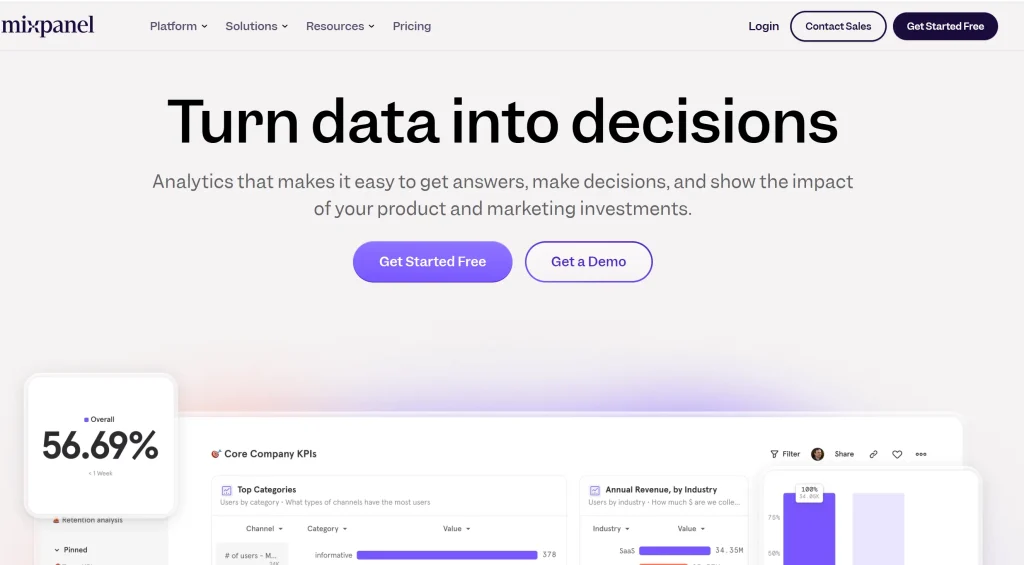
Target Users
Mixpanel is useful for mobile-first startups, e-commerce companies optimizing conversion funnels, or any startup where detailed user behavior analysis directly impacts growth metrics.
Key Features
- Event-based tracking: Mixpanel provides deep insight into user actions.
- Advanced segmentation: Provides precise user group analysis.
- A/B testing integration: Experiments can be directly connected to analytics.
- Real-time data processing: Immediate insight into campaign performance is easily accessible.
- Strong mobile analytics: Opportunity to get detailed app usage tracking.
Considerations for Startups
- Requires manual event instrumentation: Initial setup can be complex and may need developer involvement.
- Can become costly at scale: Mixpanel pricing increases with the volume of tracked data and users.
Pricing
Mixpanel offers three plans, but two of them can be the most useful for startups. The Free plan offers basic features to test the platform, whereas the Growth plan is a step up with its 1M free monthly events and unlimited reports.
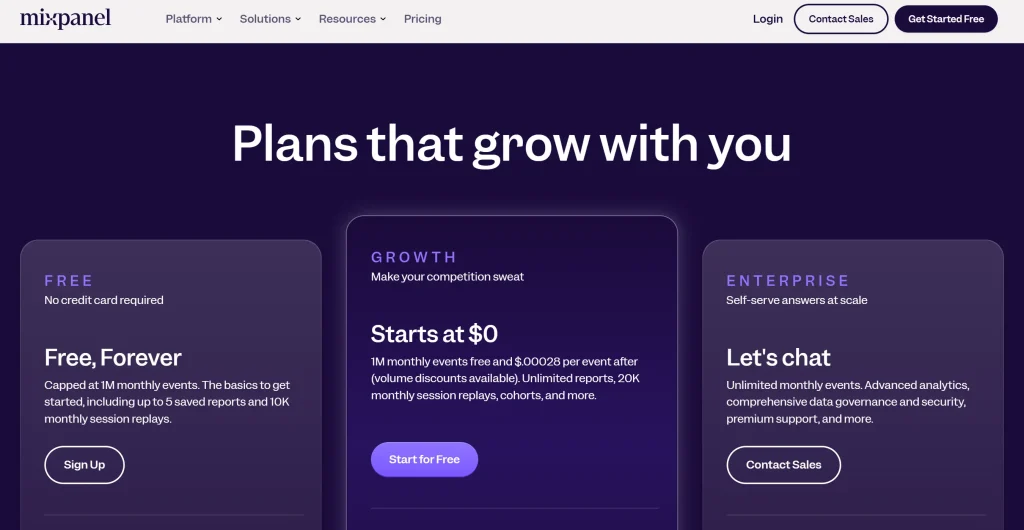
You might find this useful: Data Analytics for Small Business Owners
Learning Curve
Mixpanel is intuitive once set up, but the initial configuration of event tracking and data models can be complex for non-technical teams and may require help from developers.
Summary of Best Data Analytics Platforms
Here is a quick summary table of all data analytics platforms.
| Tool | Best For | Key Features & Pros | Pricing | Cons | Learning Curve |
|---|---|---|---|---|---|
| Ajelix | Non-tech users, CEOs, founders, and managers | 18+ AI tools, multilingual, no-code formula generator, BI dashboards, automation, templates | Freemium model; 4 plans: two for only AI tools, two for BI users; transparent pricing | Feature-rich interface might feel overwhelming at first | Easy to start; BI tools may require a short learning period |
| Google Analytics 4 | Founders, growth teams, and marketers needing in-depth product or traffic analysis | Event-based tracking, predictive metrics, Google Ads & BigQuery integration, cross-platform reporting | Free; GA360 upgrade available for enterprise users | Steep learning curve, sampled data in free version | Complex UI and structure; requires onboarding and practice |
| Heap | Startups wanting effortless user journey tracking and auto data capture | Autocapture events, retroactive analysis, journey mapping, segmentation, data governance | Free plan available, pricing is not available upfront | May generate noisy data if not filtered, advanced use needs training | Easy for beginners; moderate for custom events and filters |
| Mixpanel | SaaS/product teams focused on user behavior, retention, and feature tracking | Custom event tracking, cohort analysis, A/B testing analytics, powerful funnels and dashboards | Free plan; paid plans scale with usage | Requires manual setup; costs increase with data scale | User-friendly post-setup; technical configuration needed early on |
Free PDF Checklist for Choosing the Best Analytics Platform for Startup Data Needs
Feel free to download the checklist for free, and hopefully, it will help you with your decision of picking the best analytics platform for startup data needs.
Here’s an extra tip to keep in mind: once you’ve chosen a platform, take the time to assess if it truly fits your startup’s needs. Pay attention to key indicators, such as how quickly your team finds answers, the frequency of data-driven decisions, and the extent to which the platform is used across your team.
Conclusion
The best analytics platform for startup data needs isn’t the most complex or feature-rich. It’s the one your team will actually use. Start with your goals, honestly assess your team’s capabilities, and prioritize platforms that will deliver value within the first 90 days. The perfect analytics setup is the one that helps you make better decisions faster, and everything else is secondary.
If you’re looking for a low-friction, AI-supported toolkit that grows with your startup, Ajelix might be your call.
Want more AI and data tips? Check out our blog section or follow us on socials.
FAQ
Focus on your current goals and pick a tool your team can use now and that delivers fast insights. The Ajelix checklist can help you evaluate different platforms.
Start with your goals, not features. Clarify if you need product insights, marketing attribution, customer segmentation, or investor reporting. Your analytics type defines your ideal platform
If you don’t have engineers or analysts, pick platforms with no-code setup, natural language querying, or AI support (like Ajelix). Avoid tools that need manual event tagging or SQL unless you’re ready for that.
Platform switching is normal. The bigger risk is delaying insights while trying to find the perfect tool. Start small, then evolve.
Track metrics like time from question to answer, percentage of decisions backed by data, and team adoption rates. If you’re not making faster, more confident decisions within 60 days, reassess your choice.
